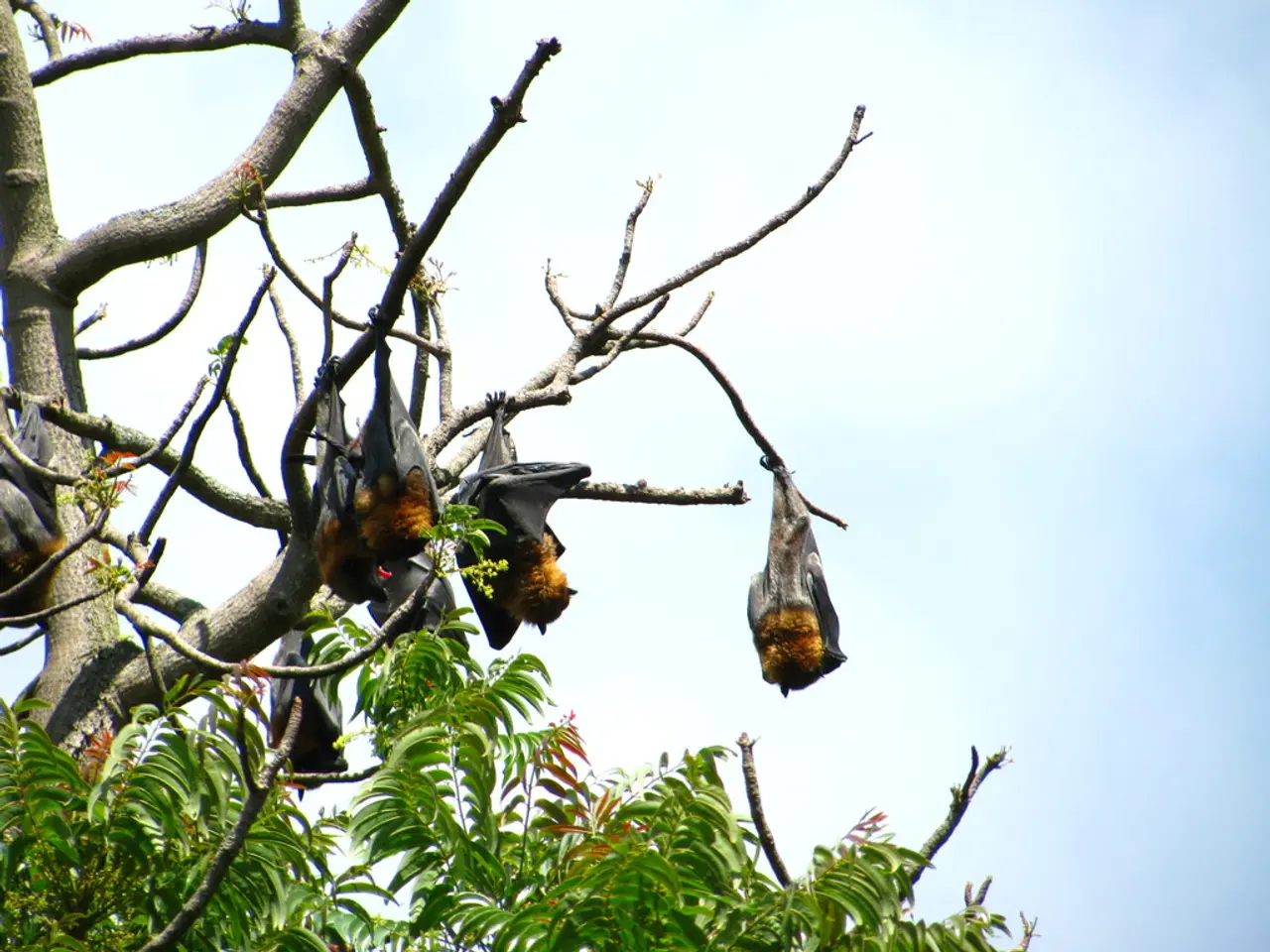Researchers at the University of Saskatchewan are investigating bats to find solutions for potential future epidemics
Dr. Arinjay Banerjee, a researcher at the University of Saskatchewan's Vaccine and Infectious Disease Organization (VIDO), is leading a groundbreaking study aimed at finding a cure for future pandemics. The focus of the research is to uncover why bats do not get sick despite carrying many viruses, which could potentially lower potential mortality rates for future pandemics[1].
This research, conducted at the University of Saskatchewan, is not just about understanding the mystery of bat immune systems, but also about turning this understanding into a tangible solution. By analysing bat genes and immune responses, VIDO researchers hope to develop next-generation antiviral therapies, potentially leading to quicker vaccinations for diseases like COVID-19[1].
The studies are designed to help scientists come up with quicker and more effective solutions for pandemics. The goal is to leverage the natural viral tolerance of bats to combat emerging zoonotic diseases that jump from wildlife to humans, such as coronaviruses responsible for COVID-19[1].
Recently, Dr. Banerjee’s lab at VIDO published foundational research that acts as a "pandemic preparedness tool kit." This work provides critical data on bat immune systems and virus interactions that can influence policy, improve understanding of mammalian immunity, and guide the development of antiviral therapies[1].
In summary, VIDO’s research on bats is a significant step towards future pandemic cures. By decoding natural viral resistance mechanisms in bats, the organisation is creating vital knowledge for vaccine design, antiviral development, and improved outbreak preparedness against viruses like SARS-CoV-2. This approach leverages nature’s own pandemic defense models to help protect human health[1].
[1] University of Saskatchewan, Vaccine and Infectious Disease Organization (VIDO), press release, 2021.
This research at the University of Saskatchewan, led by Dr. Arinjay Banerjee, not only explores the mystery of bat immune systems but also aims to translate this knowledge into health-and-wellness solutions. The goal is to use the insights gained to develop medical-conditions treatments, such as next-generation antiviral therapies, potentially aiding in quicker vaccinations for various diseases, including SARS-CoV-2 [1]. The studies conducted by VIDO are also contributing to science by providing vital data that influences policy, improves our understanding of mammalian immunity, and guides the development of health solutions, like antiviral drugs [1].




